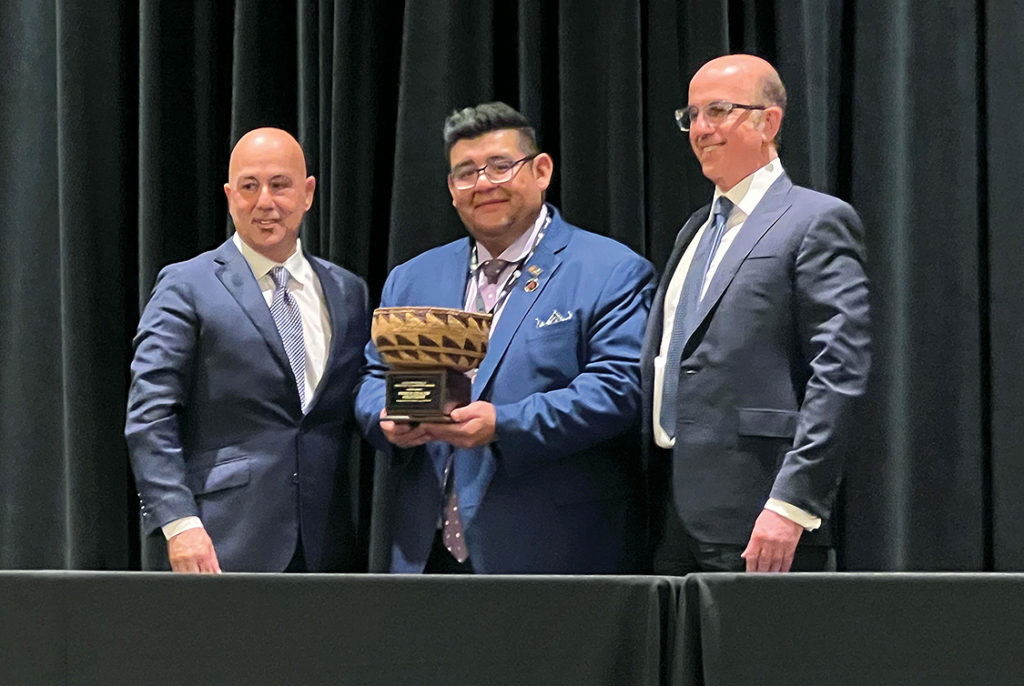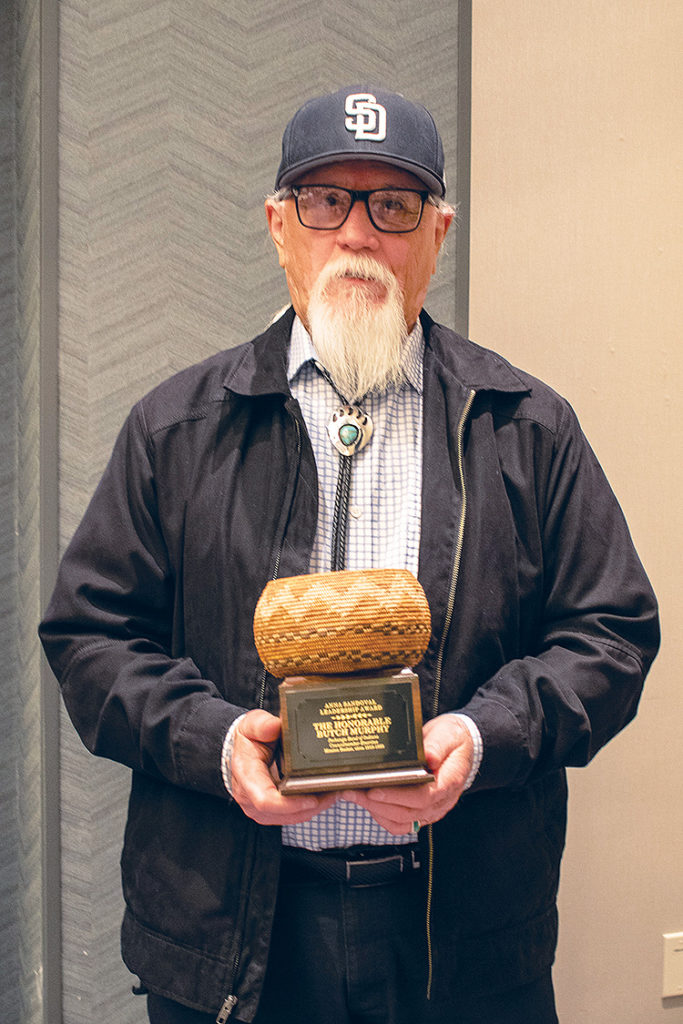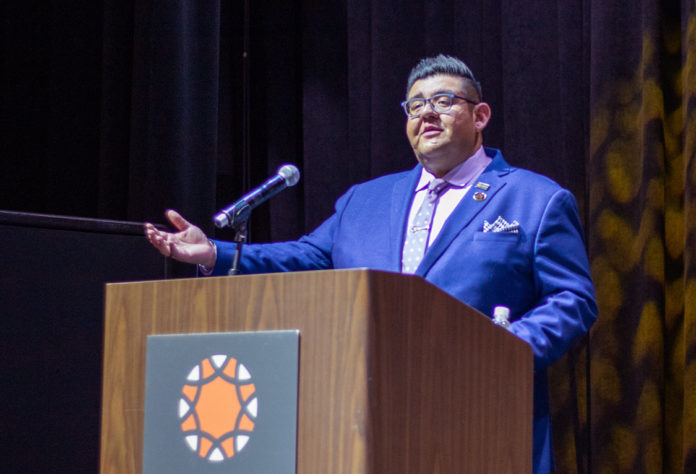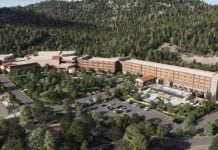Hundreds of tribal leaders, regulators, industry professionals and policy experts gathered at the 26th annual Western Indian Gaming Conference (WIGC) at Sycuan Casino Resort near San Diego February 13-16.
The WIGC and tradeshow has proven to be one of the most durable and informative conferences in Indian Country. Its opening session features the annual State of the Tribal Nations address, delivered by the Chairman of the California Nations Indian Gaming Association (CNIGA), the organization that has sponsored the event since its inception.
This year, CNIGA Chairman James Siva delivered the address and focused on several issues confronting tribes and tribal government gaming in California.
Chairman Siva began the address lauding tribal resilience emerging from the COVID-19 pandemic. He mentioned two recent projects as evidence of this resilience – The Elk Valley Casino near Crescent City, which took the place of the Elk Valley Rancheria’s original casino, noting that the tribe is the second largest employer in their area; as well as Wilton Rancheria’s Sky River Casino near Sacramento, built on the site of an abandoned half-built shopping center.
He also announced the addition of five new tribal members to CNIGA – the Alturas Indian Rancheria, Big Sandy Rancheria of Mono Indians, the Colusa Indian Community, the Karuk Tribe and the Yocha Dehe Wintun Nation – bringing the total membership in the organization to 47 tribes.
Touting tribal efforts to defeat last fall’s Proposition 27, an initiative on the California ballot that sought to legalize sports wagering and place it under the control of commercialgaming interests, Siva noted the widespread opposition from across the political spectrum and said the results contain a warning.
“[Proposition 27] suffered one of the widest defeats in California history and should serve as a cautionary tale to those that attempt to enter the California gaming market without working directly with tribes,” said Siva.
Citing figures from the California Employment Development Department, Siva reported that collectively California tribal governments provided over 63,000 jobs. That number is up from roughly 57,000 a year earlier, a net gain of nearly 6,000 jobs. Refuting accusations from the UNITE HERE labor union that Siva labeled “misinformation,” Siva said that the jobs were well paying. He also pointed out that they are disproportionately in economically disadvantaged areas of California.
Regarding policy issues, Siva focused on three areas in which the State of California is failing tribes: state overreach in demanding provisions in tribal/state gaming compacts not permitted by the Indian Gaming Regulatory Act; lack of enforcement at commercial card rooms offering illegal house-banked games; and mismanagement of the Indian Gaming Special Distribution fund as revealed in a Joint Legislative Committee-authorized state audit requested by CNIGA.
In addition to general session panels that followed the State of the Tribal Nations address focusing on the defeat of Proposition 27 and the state audit of the Special Distribution Fund, two days of expert panels in several subject areas took place. The panels featured experts in tribal government, casino operations and security, regulation, finance and business development, and law. Of the last subject area, the seminars, pending state bar approval, count toward yearly Minimum Continuing Legal Education requirements for attorneys in California, as they have in previous years.


The WIGC also honors both tribal and industry leaders with a special awards luncheon held every year at the conference. The awards are the Anna Sandoval Leadership Award and Pauline Murillo Industry Leader Award, named for noted California tribal figures well-known for their work in asserting tribal sovereign rights and improving the lives of their respective tribes.
This year’s recipient of the Anna Sandoval Leadership Award was Russell “Butch” Murphy, a retiring longtime Pechanga tribal councilmember as well as retiring CNIGA executive committee member. Murphy was honored for his longtime service ensuring tribal sovereign rights in California.
Taking the honors for this year’s Pauline Murillo Industry Leader Award were Pedram and Pejman Salimpour of Pierce Health Solutions. The noted doctors, who are brothers and business partners, were recognized for their roles in advising tribal governments to safely re-open their businesses after the COVID-19 pandemic. In his speech in presenting the award, Chairman Siva noted that, unlike commercial gaming, tribal businesses provide revenues for vital governmental services, making Pierce’s efforts that much more important for tribal governments.
The WIGC is an annual event and held each year in February.
For more information about the California Nations Indian Gaming Association, visit www.cniga.com.














































